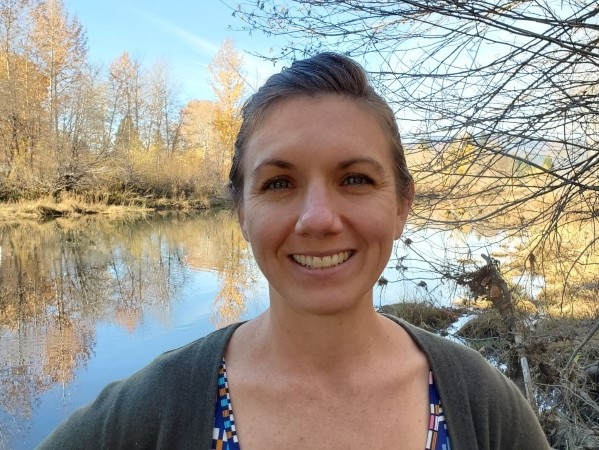Lauren Redmore
Research Social Scientist

Email: lauren.redmore@usda.gov
Phone: (406) 542-4198
Fax: (406) 542-4196
Address:
790 East Beckwith Avenue
Missoula, Montana 59801
Ph.D., Recreation, Park and Tourism Sciences, 2020 -- Texas A&M University, College Station, TX
(Certificate in Applied Biodiversity Sciences)
MSc., Forest Resources, 2009 -- Oregon State University, Corvallis, OR
(Concentration social sciences)
B.A., Biology and Religion, 2006 -- Dickinson College, Carlisle, PA
Background
Lauren is a social scientist who uses mixed qualitative and quantitative methods to understand the relationships between people and the environment. Her work centers around questions of how people access and manage natural resources across scale, spanning individual identities, household resource needs, and community values with consideration for wider historical and political contexts. Lauren’s work focuses on several key areas, including access to and exclusion from wilderness areas and wilderness-making processes, and cultural and subsistence values of wilderness areas. She brings experience from the non-profit sector and has worked across the United States and sub-Saharan Africa in community-based conservation, program evaluation, and policy analysis.
To learn more about Lauren's research, visit her Research Information Tracking System page on the USDA FS website.
Selected Publications
Larasatie, P., Hopkins, T., & Redmore, L. (2021). An evidence-based approach of a grassroot gender equality initiative: The WOWNet in Oregon, US. International Union of Forest Research Organizations (IUFRO) Task Force: Gender Equality in Forestry.
Redmore, L., Stronza, A., Songhurst, A., & McCulloch, G. (2020). Where elephants roam: Perceived risk, vulnerability and adaptation in the Okavango Delta. Ecology and Society, 25(4):27. https://doi.org/10.5751/ES-12001-250427
Petriello, M., Redmore, L., Sene-Harper, A., & Katju, D. (2019). Terms of empowerment: of conservation or communities? Oryx, doi:10.1017/S0030605319000036
Buchholtz, E. K., Redmore, L. E., Fitzgerald, L. A., Stronza, A., Songhurst, A. C., & McCulloch, G. (2019). Temporal partitioning and overlapping use of a shared natural resource by people and elephants. Frontiers in Ecology and Evolution, 7, 117.
Redmore, L., Stronza, A., Songhurst, A., & McCulloch, G. (2017). Which way forward? Past and new perspectives on community-based conservation in the Anthropocene. Encyclopedia of the Anthropocene. Elsevier Reference Module in Earth Systems and Environmental Sciences.
Redmore, L. E. & Tynon, J. F. (2011) Women Owning Woodlands: Understanding women’s roles in forest ownership and management. Journal of Forestry, 109(5), 255-259.
Redmore, L. E., Tynon, J. F. & Strong, N. (2011). Women owning woodlands: A case study from the U.S. The IUCN Forest Conservation Programme: Arborvitae - Attending to Gender 43, 6. Available from http://www.iucn.org/about/work/programmes/forest/?7091/arborvitae-Issue-43---Attending-to-gender
Other select communications
Into the wilderness with Byron Pace. (2020). #167 Science Shorts: Lauren Redmore Ph.D. Human, elephant co-existence. Available from https://paceproductionsuk.libsyn.com/167-science-shorts-lauren-redmore-phd-human-elephant-co-existence-africa-botswana-conservation-wildlife-conflict?tdest_id=2314139
Redmore, L. (2020) Mixed-method evaluations paint a park equity portrait. National Recreation and Park Association magazine. (https://www.nrpa.org/parks-recreation-magazine/2020/november/mixed-method-evaluations-paint-a-park-equity-portrait/)
Redmore, L., & Buchholtz, E. (2018). Collaboration across contexts. Applied Biodiversity Sciences Perspectives Series: Advancing Conservation Communication. (8: 55-57). Retrieved from https://biodiversity.tamu.edu/files/2018/12/PS8_Redmore-Buccholtz.pdf